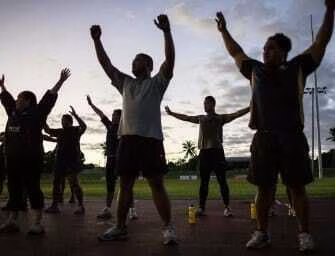Hard Times Create Focus and Happiness

Source: http://interrete.org/lower-depression-better-mental-health-during-the-great-recession-national-study-finds/ – Lower depression, better mental health during the Great Recession, national study finds | Interrete
I have a theory about this that I’ve assembled from multiple sources–most notably Bertrand Russell’s book on happiness in the modern age.
The idea goes like this: people are happiest when they’re struggling against real-world problems and achieving some measure of success. Examples include things like needing shelter from the elements. Needing food to give your hungry children. Needing a job to pay for bills. Etc.
When people have these struggles, and they’re able to overcome them, they are happy. I think this is why so many poor countries and areas and groups are reported to be happier than those with more.
It’s also why religiosity correlates to both happiness and to poverty. Religion is all about being thankful for not having anything. Flood wiped everything out? Be thankful they didn’t take you. Sickness took three of your children? Be thankful God spared one of them.
So when poor families get together in the evening, around a table of food, and put their hands together in prayer, they’re thankful. For family. For food. For children. For whatever it is that they have.
Those who have a lot, however, quickly become numb to their riches. Their bounties are ever-present, and thus become invisible. And so instead of being happy that they have high-paying jobs and nice homes and plenty of extra spending money, they fret over not knowing what to do.
So they consume drugs. Alcohol. Antidepressants. They see shrinks. They write reading about how hard the world is. How unfair it is. How they have it harder than anyone else. And the poor sit there happy to have lived another day, and to see the smiling faces of their family.
So that’s my take: people were happier in the recession because they had focus. They knew what mattered. The path to meaning was illuminated for them, and it pointed to real-world obstacles. It was a signpost that said:
Happiness is getting a job. Happiness is having money for a movie. Happiness is paying rent for another month. Happiness is buying school supplies for my kids.
That’s clarity. That’s truth. That’s the fuel for the human spirit.
And as soon as the economy gets good enough for us to take things for granted–well, then we get depressed.
So what’s the lesson?
The lesson is that we should be working less to have what we desire, and more to desire what we have. We need to be happy with little. Alone time. Books. Shelter. Friends.
This is why mediative practices lead to happiness. They focus on the epicenter of this entire conversation, which is being happy with as little as possible. Monks work to be happy with nothing, but we don’t have to go to that extreme.
Let’s just be thankful for the basics, like we would be if we didn’t have them.